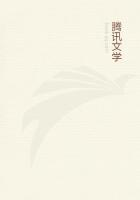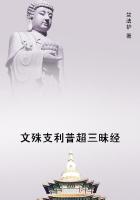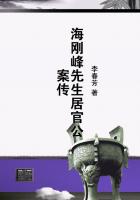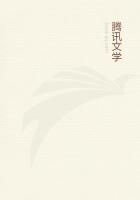Such spirits as he desired to please, such would I choose for my judges, and would stand or fall by them alone. Segrais has distinguished the readers of poetry, according to their capacity of judging, into three classes (he might have said the same of writers, too, if he had pleased). In the lowest form he places those whom he calls les petits esprits--such things as are our upper-gallery audience in a playhouse, who like nothing but the husk and rind of wit; prefer a quibble, a conceit, an epigram, before solid sense and elegant expression. These are mob-readers. If Virgil and Martial steed for Parliament-men, we know already who would carry it. But though they make the greatest appearance in the field, and cry the loudest, the best of it is they are but a sort of French Huguenots, or Dutch boors, brought ever in herds, but not naturalised, who have not land of two pounds per annum in Parnassus, and therefore are not privileged to poll. Their authors are of the same level; fit to represent them on a mountebank's stage, or to be masters of the ceremonies in a bear-garden. Yet these are they who have the most admirers. But it often happens, to their mortification, that as their readers improve their stock of sense (as they may by reading better books, and by conversation with men of judgment), they soon forsake them; and when the torrent from the mountains falls no more, the swelling writer is reduced into his shallow bed, like the Mancanares at Madrid, with scarce water to moisten his own pebbles.
There are a middle sort of readers (as we held there is a middle state of souls), such as have a farther insight than the former, yet have not the capacity of judging right; for I speak not of those who are bribed by a party, and knew better if they were not corrupted, but I mean a company of warm young men, who are not yet arrived so far as to discern the difference betwixt fustian or ostentations sentences and the true sublime. These are above liking Martial or Owen's epigrams, but they would certainly set Virgil below Statius or Lucan. I need not say their poets are of the same paste with their admirers. They affect greatness in all they write, but it is a bladdered greatness, like that of the vain man whom Seneca describes an ill habit of body, full of humours, and swelled with dropsy. Even these, too, desert their authors as their judgment ripens. The young gentlemen themselves are commonly misled by their pedagogue at school, their tutor at the university, or their governor in their travels, and many of these three sorts are the most positive blockheads in the world. How many of these flatulent writers have I known who have sunk in their reputation after seven or eight editions of their works! for indeed they are poets only for young men. They had great success at their first appearance, but not being of God, as a wit said formerly, they could not stand.
I have already named two sorts of judges, but Virgil wrote for neither of them, and by his example I am not ambitious of pleasing the lowest or the middle form of readers. He chose to please the most judicious souls, of the highest rank and truest understanding.
These are few in number; but whoever is so happy as to gain their approbation can never lose it, because they never give it blindly.
Then they have a certain magnetism in their judgment which attracts others to their sense. Every day they gain some new proselyte, and in time become the Church. For this reason a well-weighed judicious poem, which at its first appearance gains no more upon the world than to be just received, and rather not blamed than much applauded, insinuates itself by insensible degrees into the liking of the reader; the more he studies it, the more it grows upon him, every time he takes it up he discovers some new graces in it. And whereas poems which are produced by the vigour of imagination only have a gloss upon them at the first (which time wears off), the works of judgment are like the diamond, the more they are polished the more lustre they receive. Such is the difference betwixt Virgil's "AEneis" and Marini's "Adone." And if I may be allowed to change the metaphor, I would say that Virgil is like the Fame which he describes:-
"Mobilitate viget, viresque acquirit eundo."
Such a sort of reputation is my aim, though in a far inferior degree, according to my motto in the title-page--sequiturque patrem non passibus aequis--and therefore I appeal to the highest court of judicature, like that of the peers, of which your lordship is so great an ornament.
Without this ambition which I own, of desiring to please the judices natos, I could never have been able to have done anything at this age, when the fire of poetry is commonly extinguished in other men.
Yet Virgil has given me the example of Entellus for my encouragement; when he was well heated, the younger champion could not stand before him. And we find the elder contended not for the gift, but for the honour (nec dona moror); for Dampier has informed us in his "Voyages" that the air of the country which produces gold is never wholesome.
I had long since considered that the way to please the best judges is not to translate a poet literally, and Virgil least of any other; for his peculiar beauty lying in his choice of words, I am excluded from it by the narrow compass of our heroic verse, unless I would make use of monosyllables only, and these clogged with consonants, which are the dead weight of our mother tongue. It is possible, I confess, though it rarely happens, that a verse of monosyllables may sound harmoniously; and some examples of it I have seen. My first line of the "AEneis" is not harsh -
"Arms, and the man I sing, who forced by Fate," &c. - but a much better instance may be given from the last line of Manilius, made English by our learned and judicious Mr. Creech -

